The Ultimate Guide to Personal Development
Key Points:
- Personal development is not just an activity, but a way of life.
- Create your personal development plan today to mitigate your weaknesses and maximize your strengths.
- Use the test-measure-learn loop to maintain the momentum of your learning.
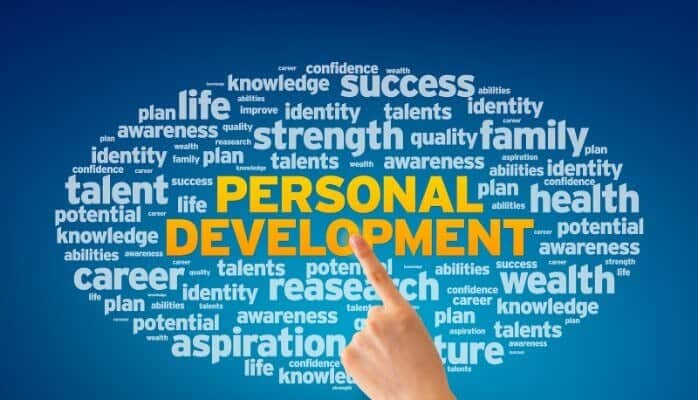
In today’s age of instant communications and big data, the abundance of knowledge and information has become one of the most valuable commodities. Research by Experian CheetahMail indicates that your email alone is worth almost $100 to some brands.
With so much knowledge available at the tip of your finger, those who continuously develop their abilities, and can meet the demands of a constantly changing world, will be primed for success. Those who fail to pursue their development, however, will find themselves slipping between the cracks.
Thankfully, with the correct tools and expertise, as provided in this article, personal development need not be difficult. Learning is a fundamental human trait, and learning to enjoy it will instill a sense of purpose, happiness, focus, and fulfillment that many lack.
Whether for school, sports, or professional careers, personal development forms the foundation of success. In today’s age, even staying stationary will leave you falling behind. Only the strongest survive, and your future growth starts with your own personal development.
Definition of Personal Development
The definition of personal development is any activity you undertake that develops your capabilities and potential. This covers a broad scope and may include employability, enhancing the quality of life, and the ability to achieve your goals, dreams, and aspirations.
Personal development is better thought of as a way of life. It is not limited to certain stages of life when you need a career boost or to develop specialized skills. Instead, it is a fluid and continuous mentality where you actively seek new information and opportunities and don’t wait for them to come to you.
Personal development is not limited to self-improvement; we grow and learn in new ways when we also help others develop themselves.
When companies and institutions take on a culture of personal development, they promote both individuals and the company as a whole. A business can measurably improve its staff retention rate, growth, and industry success when adopting a culture of personal development.
The Benefits of Personal Development
The benefits of personal development are vast and essentially limitless. They also compound upon one another; for example, achieving your goals will boost your overall sense of well-being and happiness, both at home with family and in a professional setting.
The list below highlights some of the most powerful benefits of personal development.
1) Achieve Your Goals
Humans are biologically goal-seeking beings; dopamine in our bodies and brains craves the sense of reward perceived from setting goals.
Evolution has developed this dopaminergic mechanism to provide the drive, energy, and motivation to complete a task, despite us not wanting to leave the comfort of our homes and shelters.
Whereas we can now go to a supermarket to obtain many of our resources, it wasn’t always this easy. Thousands of years ago, foraging for resources such as food, shelter, and water came with considerable dangers.
Whether it be territorial disputes, navigating predators, cuts leading to infection, or leaving your dependents alone and vulnerable, we need to arouse the motivation to overcome these hazards despite the risks.
We can take advantage of our natural drive for betterment by creating a personal development plan tailored to our desired goals. The bigger the goal, the more detailed your plan needs to be.
2) Build Your Competence and Confidence
Knowledge is power (when combined with action, of course). The more skills you can acquire, the more challenges you can overcome, and with greater confidence.
Skills can be soft or hard. Hard skills are those acquired through hands-on experience, training, or education. Computer programs, data management, and general finance are all hard skills that must be learned and form the basis of your foundational competence.
While hard skills can be learned explicitly, soft skills are more nuanced and dependent on the individual. The most desired soft skills among employers include leadership, effective communication, teamwork, time management, motivation, and adaptability.
While some people perform these skills more naturally than others, they are still skills that can be learned and improved with time and experience.
3) Keeps You Motivated
Personal development goals create a road map where you can visualize your beginning, end, and the journey needed to take you there. With a map, you can plan the most efficient route from A to B while adapting to detours when life inevitably presents roadblocks.
Without a plan, your personal development journey will be much less efficient, increasing the chance of becoming lost, discouraged, or giving up on your dreams and aspirations altogether.
When you break your goals into smaller pieces and achieve them regularly, you utilize the inherent dopamine systems that make you crave and desire to achieve positive goals. The anticipation of a reward when aiming to complete a goal gives you a heightened sense of motivation.
When you fail and make mistakes, as is inevitable when embarking on any worthy goal, personal development goals diminish the negative feedback associated with failure. Instead of seeing failure as an end-point, you see it as a mechanism to allow you to get one step closer. With each mistake, you learn valuable information that inches you toward your goals.
4) Accelerate Your Professional Career
Those at the top of the career ladder are obsessed with personal development, whether they realize it to not. They never settle with the status quo and push their boundaries to ensure they remain at the top of the game.
With the extra skills developed over time from personal development, you will increase your competence, efficiency, and confidence. This will become your brand; both superiors and peers will subconsciously recognize this energy for improvement and will place you in opportunities where it can be maximized.
5) Increase Your Well-Being and Fulfilment
Personal development is both personal and professional. In your personal life, your mental health will benefit greatly as your confidence and competence transfer to family values.
Dr. Martin Seligman, a renowned American psychologist, pioneered the field of positive psychology – the scientific study of human flourishing and what it means to be happy.
In this groundbreaking theory, human flourishing centers around well-being, which is comprised of five main components (PERMA):
- Positive Emotion
- Engagement
- Relationships
- Meaning
- Accomplishment
By fulfilling all five components, we create a path that enables us to flourish. Personal development often compliments these criteria, as we seek to better ourselves, thereby increasing our sense of well-being and positive fulfillment with life.
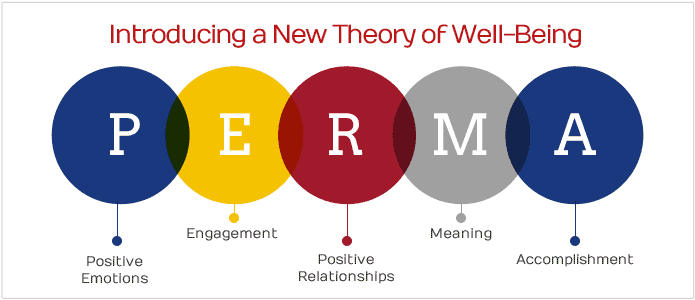
6) Build Strong Relationships
Your network of contacts is as fundamental to success as all other skills combined. You are the average of the people you spend the most time with, so we naturally look to mingle with those who will boost our own average (and cut out those who lower it).
31% of people find jobs and new opportunities through professional connections, especially referrals. And the majority of these jobs are likely to be higher-tiered.
Personal development can boost your network contacts directly, such as by meeting similarly-minded people at networking events, and indirectly, by engaging in deeper conversations with your increased knowledge. Small talk at the office cooler may be polite, but the lack of emotion makes it hard work and nonproductive.
People always gravitate to those who have new and useful information to provide. Be that person. By engaging in a lifestyle of personal development, you will be drawn to those with beneficial information as much as others will be drawn to you.
Your Free Book is Waiting
You’ll Learn:
- How to Create Habits – The Right Way
- Create a Bulletproof Plan to Achieve Your Goals
- Master the Art of Failing
- Rediscover Your Love of Learning
- Instantly Become More Personable
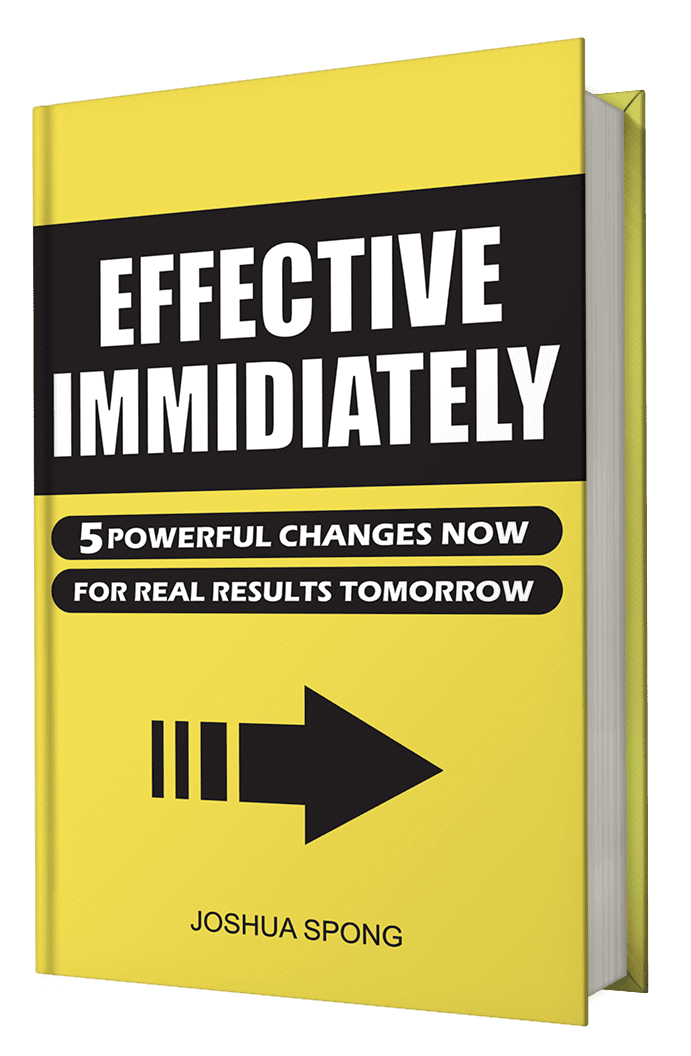
What is a Personal Development Plan
Like any good plan, the first step is to identify the skills you wish to improve to progress to a higher level. The list below contains some of the most valuable and sought-after development areas. Take note of any that might particularly apply to you, and feel free to research additional skills that may be relevant.
The Most Desired Personal Development Skills:
1) Communication and Interpersonal Skills
According to the Connected culture report, 71% of those employees who said they were more productive feel well-connected to their colleagues. Businesses also report a productivity increase of 20–25% from well-connected teams. This sense of connection stems from being able to communicate effectively, in terms of speaking and listening.
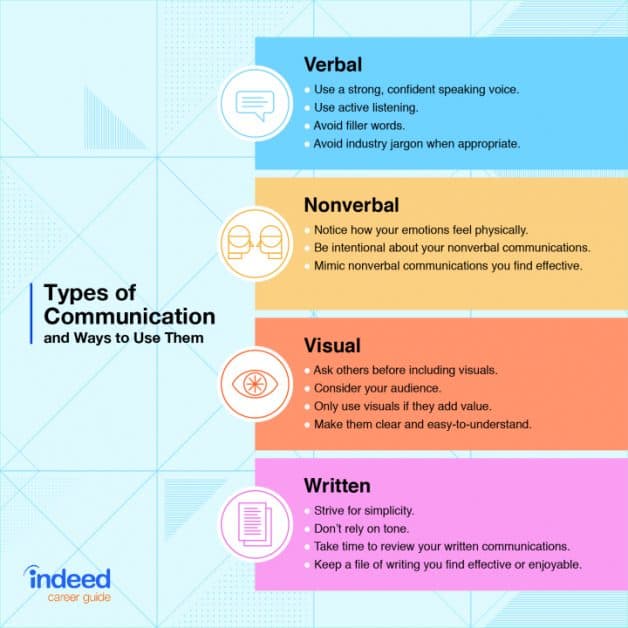
2) Negotiation/Conflict Resolution
Nobody likes an argument. They are frustrating and can prove costly when it comes from clients and customers. As a result, companies pay handsomely for strong negotiation and conflict resolution skills, as they are vital for retaining customers, and their business.
In today’s world, being able to communicate your point with confidence is the caveman equivalent of being the strongest person in the room. Those who are careful and precise with their words are a formidable force. These are the modern alphas who dominate all aspects of their lives.
3) Adapting to Change
The only thing certain is that nothing is certain. Change is as ubiquitous in our lives as food and water.
Change usually has negative connotations, and while it can be difficult to adapt to, it provides new opportunities for those who are prepared for it.
Business environments change consistently, and companies will spare no expense to hire those who can best prepare them for it. Being prepared for change requires both knowledge and aptitude to meet its challenges.
A large part of adapting to change means anticipating problems before they arise. This is the motive of Andy S. Grove, former CEO of Intel, who famously quipped in his best-selling book “Only The Paranoid Survive”.
4) Organizational Skills
Knowledge is great, but putting it to the best use proves more difficult. Those who can manage their time and resources to optimize their output will stand head and shoulders above their peers and competitors. There is a vast difference between working hard and working smart, and working hard will often not cut it.
Managing our time involves managing our priorities. If there is one thing you take away from this article, I want it to be this: Always spend your time on your most valuable task. This will be a compromise between urgency and importance – expense reports due today are not important, but very urgent, whereas that book you want to write is very important but not so urgent.
Writing a to-do list is only half the battle, the real value lies in prioritizing its tasks honestly and effectively.
5) Emotional Intelligence
Your mind and its thoughts are a complex blur of emotional impulses and rational thoughts. Before we can learn to manage them, we first need when to identify when we are succumbing to our emotional impulses.
When feeling overwhelmed, we need to understand that procrastination is the result of our primal subconscious mind being frustrated by uncertainty. In our hunter-gatherer days, any doubt, no matter how slight, could mean the difference between life and death.
By understanding that our mind is often filled with impulsive thoughts from the primal parts of the brain, we can begin to accept them for what they are and encourage our conscious and rational minds to take over and make more logical decisions.
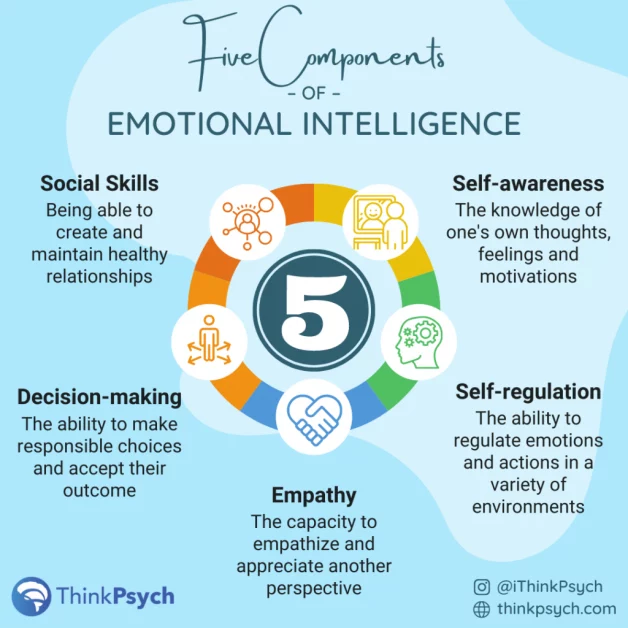
Identify 3 Personal Development Skills
Your Personal development plan begins with identifying a few personal development skills that will have the greatest impact on your life, both personal and professional.
From the list above, or for any other skills you have identified, rank them from most beneficial to least. Take the top 3 and develop a plan that will put these skills into practice.
Create Your Personal Development Plan
Your plan will be subjective and based on your present and desired levels of skill, but you need to create unique tasks that will enable you to gather real-world experience and practice.
Brainstorm simple exercises that incorporate your personal development goals. If interpersonal skills are on your list, for example, create a task of engaging in one conversation a day about a specific subject.
To improve your conflict resolution ability, identify opportunities to apply new techniques where you can gather real-world feedback.
I offer two critical pieces of advice when developing your personal development plan: start simple with easier tasks to build your confidence, and increase their difficulty incrementally as you gain confidence, and seek tools, such as a coach or online courses to ensure the information you are acting upon is high quality.
Write down your plan, including your goals. It does not matter if typed on an excel sheet or written in a notebook, but this document needs to remain readily available for regulator reflection. It will also serve as your reference point upon which you can measure and track your progress.
Measure Your Personal Development Progress
Before we can learn, we first need to measure. And the sooner we measure, the sooner we can learn.
Quality data drives quality decisions. How do the results compare with your predictions? If your conflict resolution practice did not end as you intended, identify the most likely reason and plan to adopt this new information into your next attempt.
Measuring progress can be emotionally difficult because the results often differ from our expectations, which can be interpreted as failure. But we must leave our ego at the door and recognize that failure is not a personal reflection, but a pivot toward our end goal.
Once you’ve measured your results, and noted potential reasons behind them, integrate the information back into your personal development plan, and start the cycle again. I recommend reflecting on your progress measurements at least once a week and updating your development plan as necessary.
Learn From the Measurements of Your Personal Develop Plan
Once you have tested your personal development goals and measured the results of their application, the final step is to put them to use in the form of lessons learned.
This is the most important step, without which the loop will never be complete, and progress will never be made.
If your negotiation plan failed because you couldn’t meet their demands, for example, plan ways in which you can get around this. Offer them something of greater value, perhaps an additional service that may help them meet other needs.
If you are making good progress in two of your goals, but making little improvement in another, consider dedicating extra time to this one and seeking help, perhaps by buying a book, taking up a course, or seeking a mentor/coach.
You have to be proactive to instill real change. Personal development depends on being active; passivity will prevent you from gaining any momentum.
A coach, mentor, or someone to hold you accountable and offer guidance will prove invaluable.
Restart the Test-Measure-Learn Loop
Once you have your lessons learned, feed this back into the test-measure-learn loop and restart the cycle. With each iteration, we gain competence and confidence that increases our personal development momentum.
Self-development is a systematic process that requires continual exposure and experience. Those who are already capable may seem to be naturally talented, but they are likely simply further ahead with their personal development goals.
Conclusion
It is never too late to start personal development. Remember, it is not a stage of life or process with a beginning and end. It is a way of life that grows and builds momentum the more we establish it in our lives.
Our personal development plans should reflect a mix of our strengths and weaknesses, mitigating the damage from our weakest skills while maximizing the advantages from our strongest.
Your progress will seem to ebb and flow; some days will bring disappointment and others success. But remember that all results are useful as long as we measure and learn from them, and put them to use in the next iteration. Leave your ego at the door and remain as rational as possible.
There is only one correct time to start your personal development journey – right now.
Let me know how your personal development journey is going in the comments below.

What is Psychedelic Therapy, and Can It Improve Your Mental Health?
Psychedelic therapy is an emerging treatment option for mental health conditions, where psychedelic drugs are combined with talk therapy to rewire certain parts of the brain.

What Is Dopamine And What Does It Do?
Dopamine is a neuromodulator that acts as a messenger between neurons. It determines the amount of motivation and drive to achieve something and leave our comfort zone.

How To Overcome Laziness – A 7 Step Guide
Explore practical strategies on how to overcome laziness, embracing laziness as natural and tackling it with rest, planning, and reframing success.”
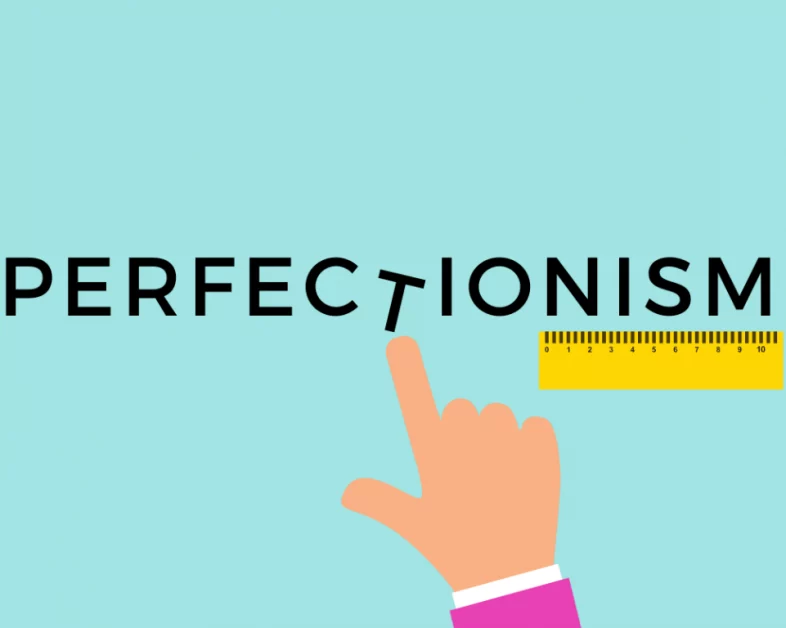
The Perfect Storm – How Perfectionism Sets You Up For Failure
Perfectionists may be known for their high standards and attention to detail, but perfectionism is the enemy of productivity. It also causes much stress and anxiety.

3 Books You Need to Read to Create Good Habits
Habits are the foundation of success and we are merely the result of good habits compounded over time. Here are the best 3 books on habits that will change your life.

How To Find Inner Peace – A Lifelong Guide
Explore how to find inner peace through removing distractions, making time to embrace silence, and tuning into your emotions through mindfulness.